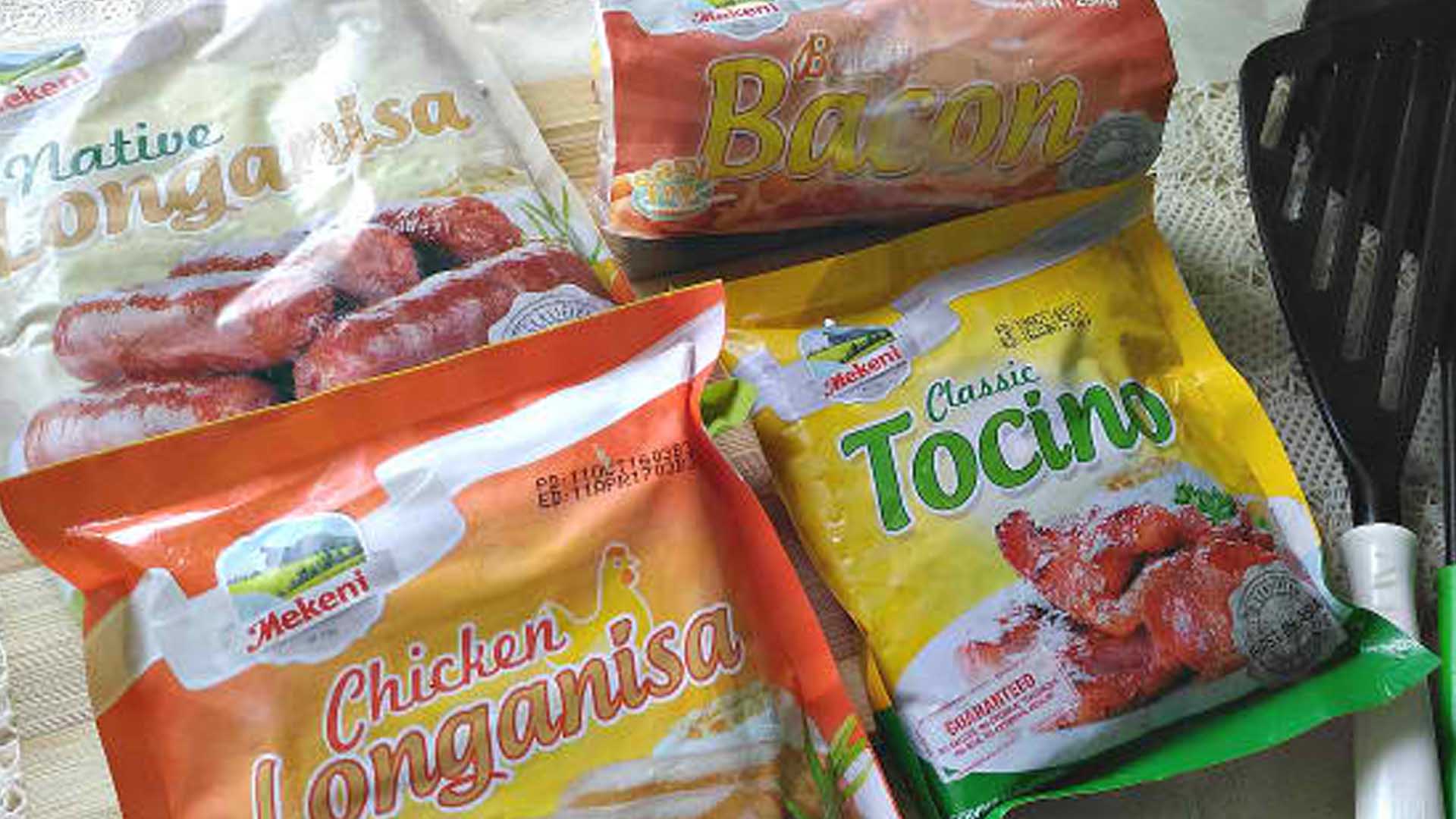After several laboratory tests taken from samples of meat products, the Department of Agriculture (DA) confirmed that Mekeni Food Corporation’s skinless longganisa and Picnic hotdogs tested positive for African Swine Fever (ASF) on Monday.
In a press conference in Quezon City, Bureau of Animal Industry (BAI) officer-in-charge Ronnie Domingo said the samples of skinless longganisa and hotdog sent by Mekeni for testing last month are positive of the ASF.
Domingo said further testing of the products also resulted positive for ASF virus DNA.
With these developments, he said the DA and the Department of Health, through the Food and Drug Administration (DOH-FDA), have agreed to jointly disclose the test results and name of the manufacturer.
“This is to end consumers’ speculations that may have untoward effect on all other processed pork products to the detriment of other meat processors,” Domingo said.
The DA, however, commended the management of Mekeni for recalling their products from the market even before the laboratory tests were concluded.
On Oct. 26, the processed meat manufacturer voluntarily recalled all of its pork-based products amid reports that the dreaded ASF virus has been detected in some of its processed pork items.
Domingo said the DA, through the Bureau of Animal Industry (BAI) and the National Meat Inspection Service (NMIS), will continue to work closely with the DOH-FDA to sustain the monitoring of all meat products and ensure that all food sold in the country are safe for human consumption.
“While ASF is not a human health concern, our Food Safety Act of 2013 mandates that meat from diseased animals must not be used for food, or for manufacturing food products for human consumption,” he said.
“Violators will be penalized with fine and imprisonment. The law basically protects consumers against unsanitary, unwholesome, misbranded or adulterated foods,” he noted.
The DA reminded hog raisers on its guidelines previously issued to effectively manage, control and contain ASF –requiring all pigs, sick or not, within the one-kilometer ASF-declared zone, be surrendered to the local government unit and BAI for culling, which is called for under the globally-accepted “1-7-10” protocol.
The DA also reiterated its call for small backyard raisers to “report to the city, municipal or provincial veterinarian any sign of disease or deaths of pigs in their area, and to refrain from swill feeding, particularly those from airlines, hotels and restaurants.”
“Do not slaughter sick or dead pigs and sell the meat to traders,” it said.
On the other hand, the DA urged the traders “not to buy and slaughter sick pigs”.
“Any backyard or illegal slaughtering, or use of meat from infected pigs will contribute to the spread of the disease, and will only result to further deaths, and losses to the PHP260-billion swine industry that supports millions of Filipinos,” it stressed.
“It is a crime to sell, trade and/or slaughter sick or dead pigs for meat or for processed pork products. Violators face imprisonment from six to 12 years or fine of PHP100,000 to PHP1 million or both,” it added.
DOH Undersecretary and FDA officer-in-charge Eric Domingo assured that DOH and FDA would support the DA’s program to contain ASF virus in the country.
As of Oct. 31, Domingo said the FDA inspected 63 manufacturing meat processing establishments all over the country.
“There are 178 (establishments) who are licensed to operate as processed meat manufacturers in the Philippines. We prioritized the 63 big firms for inspection, and we found them in compliance with the prescribed regulatory standards,” he said.
Despite this unfortunate development, Mekeni assured the government that it would continue to cooperate in its ongoing investigation to determine the source of ASF.
“We will also actively support the review of current protocols on issuing certifications for both local and imported raw meats,” it said in a statement.
While only specific batches were found to have DNA traces of ASF, Mekeni said all of its pork-based products have already been pulled out from its selling areas when it initiated a voluntary recall last October 26.
“These products are currently quarantined and a batch sampling has been submitted to an independent laboratory for ASF testing. We are still waiting for the results of these tests,” it added.
“Operations of our pork-based processing area had been suspended since October 26, and the facility has been cleansed and disinfected. A third-party company had also been engaged to do swabbing and testing of the facility before we resume operations. These measures are part of our commitment to support the government in its campaign to control the further spread of the ASF that is threatening the hog industry,” it noted. (PNA)







